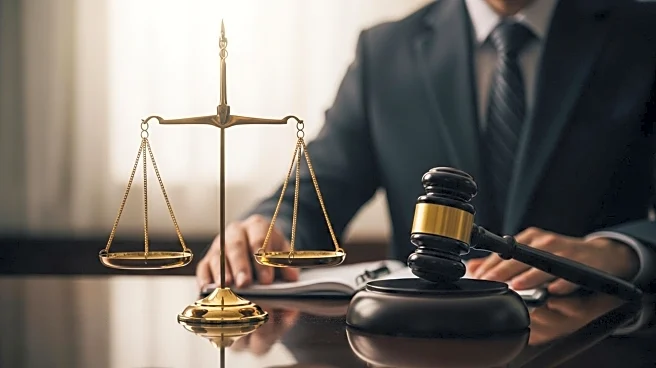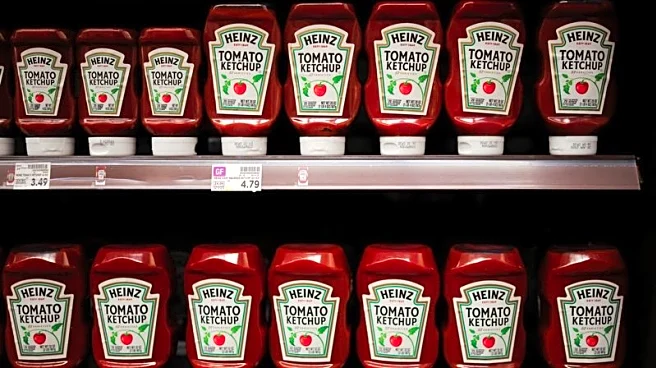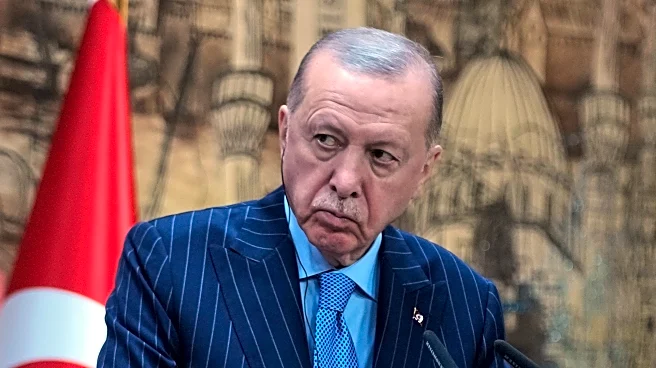What's Happening?
The Trump administration has requested the Supreme Court to issue an emergency order to revoke legal protections for over 300,000 Venezuelan migrants. This move follows a decision by a federal judge in San Francisco, who ruled that the administration improperly terminated Temporary Protected Status (TPS) for these migrants. The federal appeals court in San Francisco upheld the judge's decision, refusing to delay the ruling while the case is ongoing. Previously, the Supreme Court reversed a similar order affecting 350,000 Venezuelans whose TPS expired in April, without providing an explanation. Solicitor General D. John Sauer argued that the Supreme Court's previous decision should apply to the current case, criticizing lower courts for allegedly disregarding the high court's orders.
Why It's Important?
The administration's actions could significantly impact the lives of hundreds of thousands of Venezuelan migrants who have relied on TPS to avoid deportation. TPS is a critical program that offers protection to individuals from countries experiencing severe conditions such as natural disasters or civil unrest. The potential revocation of TPS for Venezuelans reflects broader immigration policy shifts under President Trump's administration, which has sought to reduce protections for immigrants. This decision could lead to increased deportations and affect U.S.-Venezuela relations, as well as the migrants' communities within the U.S.
What's Next?
The Supreme Court's decision on this emergency request will be pivotal in determining the future of TPS for Venezuelan migrants. If the court sides with the Trump administration, it could set a precedent for further reductions in immigrant protections. Stakeholders, including immigrant advocacy groups and political leaders, are likely to respond strongly, potentially influencing public opinion and policy discussions on immigration reform.
Beyond the Headlines
The legal battle over TPS highlights the tension between executive actions and judicial oversight in immigration policy. It raises questions about the balance of power and the role of the judiciary in checking administrative decisions. The case also underscores the ethical considerations of deporting individuals to countries facing humanitarian crises.












